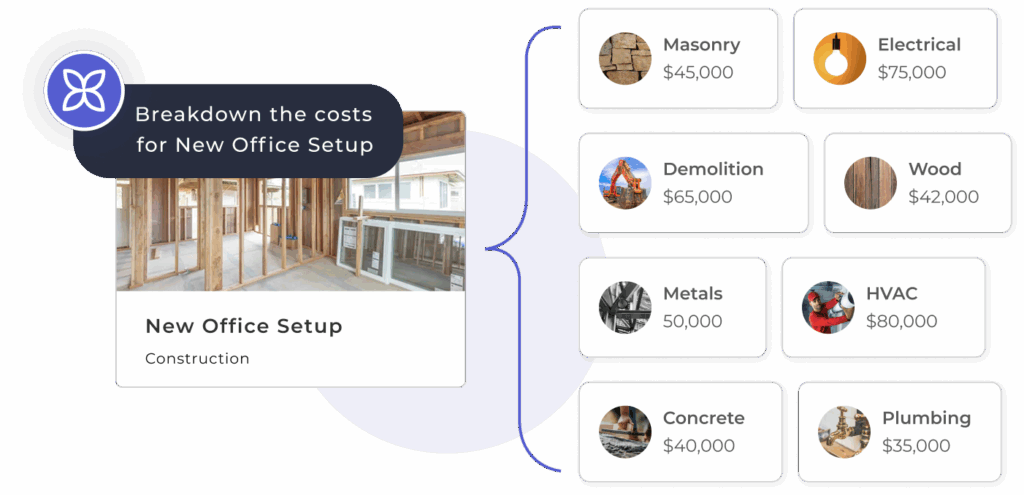Estate construction project management represents a specialized discipline that extends beyond traditional construction oversight to encompass comprehensive asset lifecycle management. Furthermore, project managers, owner’s representatives, and family offices face unique challenges when managing high-value projects that require seamless coordination between multiple stakeholders.
The complexity of construction projects often creates frustration for even experienced professionals. Moreover, these challenges multiply when managing projects for discerning clients who expect exceptional quality and transparent communication. Additionally, the transition from construction completion to ongoing property management frequently creates gaps in institutional knowledge and vendor relationships. However, modern platforms address these challenges through integrated approaches that connect project delivery with seamless estate services from construction through maintenance operations, ensuring continuity and protecting long-term asset value.
Estate Construction Project Management Common Challenges
Estate construction projects present unique complications that distinguish them from standard developments. Specifically, these projects involve multiple stakeholders with varying expertise levels, complex approval processes, and exceptionally high quality standards.
Contractor Selection: Unfortunately, many project managers rely on limited vetting processes that fail to assess contractor capabilities comprehensively. According to industry research, 98% of construction projects exceed their budget and 77% experience significant delays, often due to poor contractor selection and inadequate project coordination. Consequently, these issues lead to quality problems, timeline delays, and communication breakdowns.
Stakeholder Communication: Similarly, estate projects involve numerous parties including owners, architects, contractors, and regulatory bodies. Without proper communication systems, information gaps create misunderstandings and delays.
Transition to Operations: Most importantly, construction completion marks the beginning of ongoing property management responsibilities. However, critical project knowledge frequently gets lost during this transition, creating maintenance challenges.
Estate Construction Project Management Contractor Vetting
Successful estate construction project management begins with comprehensive contractor evaluation that extends beyond basic qualification checks. Nevertheless, many project managers underestimate the importance of thorough vetting processes.
Multi-Reference Verification: Accordingly, effective contractor selection requires consulting multiple previous clients who completed similar project scopes. In particular, focus on responsiveness, time management capabilities, and problem-solving approaches rather than just final outcomes.
Relationship Development: Subsequently, invest time in building genuine working relationships with contractors before project pressures intensify. As a result, contractors who feel respected are more likely to communicate proactively about potential issues.
Performance Documentation: Meanwhile, maintain detailed records of contractor performance and communication patterns. Eventually, this institutional knowledge becomes invaluable for future project planning.

Technology Integration for Estate Construction Projects
Modern estate construction project management requires sophisticated digital platforms that coordinate all project aspects while building foundations for ongoing operations. Specifically, integrated systems address communication gaps, documentation requirements, and operational transitions.
Centralized Communication: Therefore, implement platforms that facilitate real-time communication between all project stakeholders. Likewise, secure messaging features ensure sensitive project information remains protected while enabling transparent collaboration.
Comprehensive Documentation: In addition, digital platforms capture blueprints, progress photographs, change orders, and vendor specifications in organized, searchable formats. Furthermore, this documentation becomes essential for future maintenance and property valuations.
Real-Time Tracking: Simultaneously, automated scheduling and budget tracking provide owners with continuous visibility into project progress. Moreover, integrated approval workflows ensure decisions get made efficiently without delaying timelines.
AI-Powered Platform Capabilities:
- Predictive maintenance scheduling based on construction specifications and materials
- Automated vendor performance tracking with historical relationship management
- Integrated budget monitoring with real-time owner reporting and approval workflows
- Seamless transition protocols from construction completion to ongoing operations
Transition Planning: Construction to Operations
The most critical aspect of construction project oversight involves planning seamless transitions from project completion to ongoing property operations. Unfortunately, this transition often receives inadequate attention, creating long-term operational challenges.
Operational Documentation: Initially, compile comprehensive operations manuals that include system specifications, warranty information, and vendor contacts. Subsequently, this documentation becomes essential for property managers and maintenance teams.
Vendor Relationship Transfer: Furthermore, establish protocols for transferring contractor relationships to ongoing maintenance operations. In particular, document vendor performance and service capabilities for future reference.
Maintenance Planning: Finally, connect construction specifications with predictive maintenance schedules that protect long-term asset value. Accordingly, proactive maintenance planning prevents costly emergency repairs.
Competitive Advantages Through Integrated Approaches
Digital platforms that integrate project delivery with ongoing operations provide significant competitive advantages. Moreover, these integrated approaches create opportunities for long-term client relationships.
Repeat Business Development: Specifically, demonstrate ongoing value by transitioning one-time construction projects into comprehensive property management relationships. Therefore, clients recognize the benefits of working with teams who understand their properties completely.
Operational Efficiency: Additionally, integrated platforms reduce administrative overhead by approximately 33% through automated scheduling and communication systems. Thus, improved efficiency translates into better profit margins and client satisfaction.
Risk Mitigation: On the other hand, comprehensive documentation and proactive maintenance planning prevent costly emergency repairs. As a result, clients experience greater peace of mind about their property investments.
Transform your estate construction project management approach through integrated platforms that deliver exceptional project outcomes while building foundations for ongoing client relationships.
Discover how EstateSpace’s AI-powered platform streamlines estate construction project management and creates lasting value for your clients through seamless project-to-operations transitions.
Summary: Estate construction project management success depends on comprehensive contractor vetting, integrated communication systems, and seamless transitions from construction completion to ongoing operations that protect long-term asset value while building enduring client relationships.



